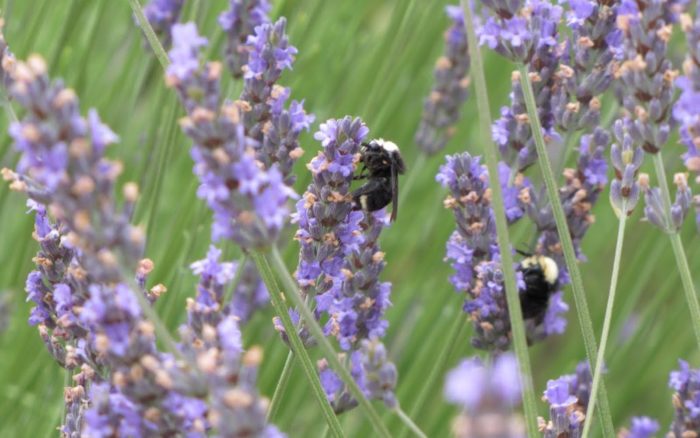| Native bumble bee sleeping overnight in lavender, awakening when sun warms them. |
The Importance of Habitat
The lavender fields sound like the inside of a beehive this week, full of all kinds of bees: honey bees and mason bees, bumble bees and carpenter bees. Honey bees get a lot of press with beekeepers losing as much as 30% of their bees every year. We have managed honey bees in ways that many believe have interfered with their immune systems, leaving them vulnerable to various mites and diseases. Honey bees can be industrially farmed, commercial beekeepers renting or selling hundreds of hives to farmers to pollinate almonds and other crops, transporting them from one side of our country to the other. Native pollinators, however, require natural habitat.
Other studies have shown that when a field is adjacent to wild lands, the crops are also pollinated by the native pollinators. They do require, however, healthy native habitat.
You can support native pollinators in several ways. Let there be bare spaces in your garden or yard where ground bees can burrow or occupy abandoned gopher holes. Allow for areas of the garden that are “wild” with native plants. In fact, use as many native plants as possible in your landscaping. Support legislation that protects rangeland. One of the greater threats to native pollinators is shrinking rangeland. California lost 105,000 acres of rangeland to development between the years 1990 and 2004 and the California Oak Foundation projects the state could lose another 3/4 of a million acres in the next 30 years.
